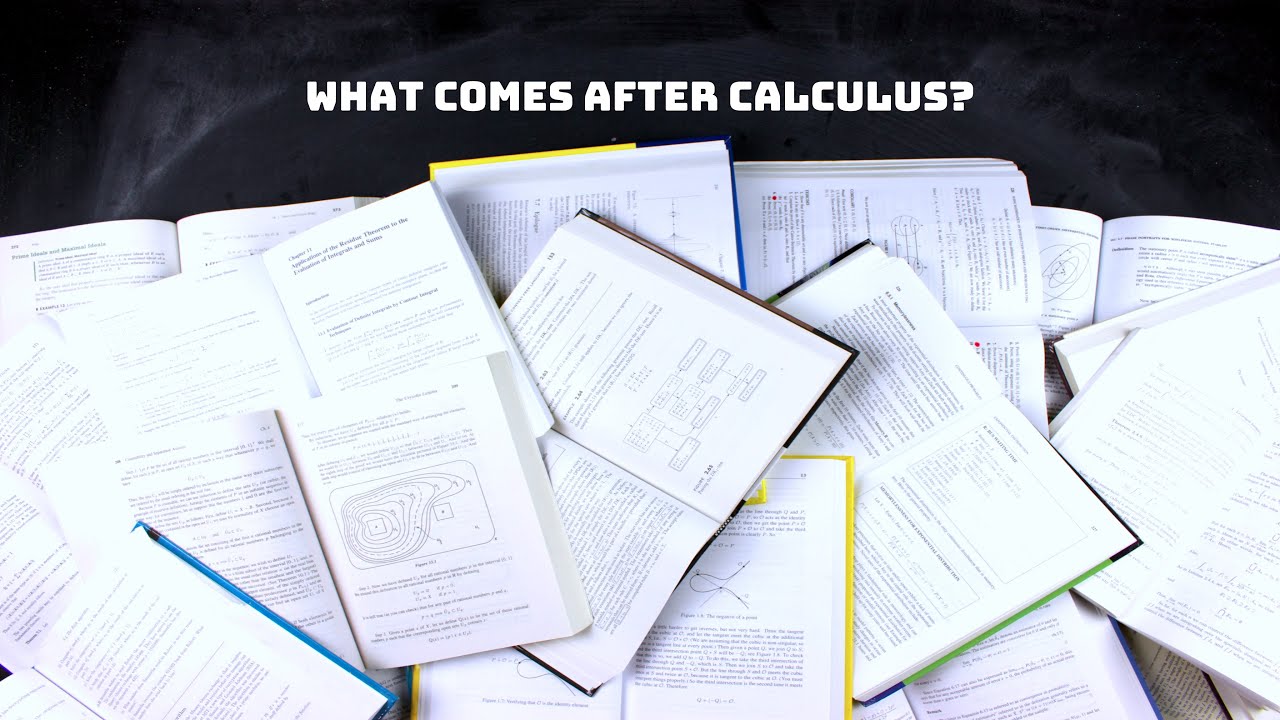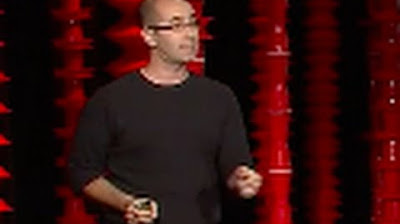What Math Classes are Hard for Math Majors
TLDRThe video discusses the challenging courses that math majors often encounter, highlighting Real Analysis, Abstract Algebra, and Algebraic Topology as the most formidable. It emphasizes the shift from computational to rigorous, proof-based approaches in these subjects, which can be a significant adjustment for students. Additionally, the video mentions Linear Algebra and Complex Analysis as subjects that can be difficult depending on the level and teaching style, rounding up the discussion with a note on the variability in difficulty across different institutions and professors.
Takeaways
- 📚 Real Analysis is often a challenging course for math majors as it introduces the study of real numbers and is commonly the first proof-based course.
- 🔍 Real Analysis requires a shift in perspective from using formulas to writing proofs and working with rigorous definitions.
- 🤔 Abstract Algebra is considered difficult due to its abstract nature and the need to build up algebraic tools from basic assumptions.
- 🌀 Abstract Algebra can be disorienting as it lacks the intuitive understanding that students may be used to in more concrete math subjects.
- 🔗 Topology, specifically algebraic topology, is noted as a challenging field that deals with concepts of continuity and spaces, and can be very abstract.
- 📈 The difficulty of a course can vary greatly depending on the professor, the level of the course, and the student's prior knowledge and experience.
- 🏆 Linear Algebra receives an honorable mention as a potentially challenging course due to its varying levels of theoretical depth and practical applications.
- 🔮 Complex Analysis is also an honorable mention, offering a range of difficulty from a basic calculus-like course to a highly theoretical and proof-based advanced study.
- 🎓 The speaker found algebraic topology to be the most challenging course they ever took, highlighting the subjective nature of difficulty in math courses.
- 👀 Familiarity with theorems in Real Analysis can be expected as they are often covered in calculus, but topology introduces new and unfamiliar concepts.
Q & A
What are the three big challenging classes for math majors according to the speaker?
-The three big challenging classes for math majors are real analysis, abstract algebra, and topology, specifically algebraic topology.
Why is real analysis often considered a difficult class for math majors?
-Real analysis is considered difficult because it is often the first proof-based course that math majors encounter. It requires a rigorous analytical approach based on definitions, which is a significant shift from the more formulaic and computational methods used in earlier mathematics courses like calculus.
How does the speaker describe the transition from calculus to real analysis?
-The speaker describes the transition from calculus to real analysis as a shift in perspective. While the subject matter may overlap, especially in the initial chapters, real analysis approaches these topics in a more rigorous and analytically rigorous manner, focusing on proofs and definitions rather than just plugging numbers into formulas.
What is abstract algebra and why does it pose a challenge to students?
-Abstract algebra is the study of algebraic structures such as groups, rings, and fields. It is challenging because it is a highly abstract subject that requires students to build up mathematical tools from the ground level, often without the intuition or techniques they are used to from more concrete areas of mathematics.
How does the speaker describe their experience with algebraic topology?
-The speaker describes their experience with algebraic topology as one of the most challenging classes they have ever taken. They found it difficult to wrap their head around the abstract concepts and noted that the class only covered about half the material they should have, according to their professor.
What are the honorable mentions for hard classes that the speaker mentions?
-The honorable mentions for hard classes mentioned by the speaker are linear algebra and complex analysis. These subjects can vary in difficulty depending on how they are presented and the level at which they are taught.
Why might linear algebra be considered challenging depending on its presentation?
-Linear algebra can be considered challenging because it can be presented in many different forms, ranging from a basic matrices class for engineers to a highly theoretical and proof-based upper-level course. The difficulty can increase significantly, especially when dealing with advanced topics like spectral theorems.
What is complex analysis and how does it differ in difficulty based on its presentation?
-Complex analysis is the study of calculus with complex numbers. It can be presented at various levels of difficulty, from a relatively straightforward extension of calculus with a focus on trigonometry and imaginary numbers, to a highly theoretical and proof-based course that delves into advanced concepts.
How does the speaker suggest overcoming the challenges presented by these difficult math classes?
-The speaker suggests that overcoming the challenges of these difficult math classes requires practice and getting used to the new way of doing math. It involves a shift in perspective and embracing a more analytically rigorous approach.
What advice does the speaker give regarding finding a good teacher for a challenging subject like topology?
-The speaker advises that if you can find a good teacher for a challenging subject like topology who is not too strict, it can greatly enhance your learning experience. A good teacher can make a complex and abstract subject more accessible and interesting.
How does the speaker's experience with these challenging math classes compare to other students' experiences?
-The speaker acknowledges that while they found certain classes like algebraic topology extremely challenging, other students may find them fascinating. The difficulty of these classes can vary greatly depending on the individual student's background, the professor teaching the course, and the level at which the material is presented.
Outlines
📚 Real Analysis: The Gateway to Rigorous Mathematics
This paragraph delves into the challenges faced by math majors when encountering real analysis, often their first proof-based course. Real analysis is the study of real numbers and serves as a foundational subject in mathematics, despite being a significant hurdle due to its rigorous and analytical approach. The course demands a shift from formulaic problem-solving to a proof-based methodology, where understanding and citing definitions are paramount. Although real analysis shares similarities with calculus, it requires students to view concepts from a new perspective, which can be disorienting. However, with practice and adaptation, students can overcome the difficulties and succeed in this crucial area of mathematics.
🔢 Abstract Algebra: Building the Framework from Scratch
The second paragraph discusses the complexities of abstract algebra, a course that challenges students to rethink their understanding of algebra from a more abstract standpoint. Unlike traditional algebra, abstract algebra begins with minimal assumptions and builds up the field's tools from the ground up. This class can be disorienting as it lacks the intuitive understanding that students may be accustomed to, and the techniques used are often unfamiliar. The difficulty is compounded by the fact that students are not yet proficient with the required methods, making the transition to this style of mathematics particularly demanding. Despite the challenges, abstract algebra is a fundamental subject that shapes the way we approach algebraic structures.
Mindmap
Keywords
💡Real Analysis
💡Abstract Algebra
💡Topology
💡Linear Algebra
💡Complex Analysis
💡Proofs
💡Algebraic Structures
💡Continuity
💡Mathematical Rigor
💡Theorems
Highlights
Real analysis is often a challenging class for math majors as it introduces the study of real numbers and is typically their first exposure to proof-based mathematics.
Real analysis is compared to calculus but from a more rigorous and definition-based perspective, which can be a significant shift for students.
Abstract algebra is another difficult subject for math majors as it requires building mathematical tools from the ground up, starting with basic assumptions.
The abstract nature of algebra can make it hard to develop intuition, especially when starting with concepts like groups without prior knowledge of techniques.
Topology, particularly algebraic topology, is noted as a challenging field that deals with concepts of continuity and spaces, and can be very abstract for students.
The speaker found algebraic topology to be the most challenging class they ever took, highlighting its level of difficulty and the abstract concepts involved.
Linear algebra is mentioned as an honorable mention for its difficulty, depending on the form it is taught and the level of theoretical rigor required.
Complex analysis is another honorable mention, which can range from being very easy to very challenging depending on the course level and focus.
The video aims to provide insights into the classes that commonly pose difficulties for math majors and shares the speaker's personal experiences with these subjects.
The importance of practice and getting used to new ways of doing math is emphasized for overcoming the challenges presented by these advanced math classes.
The speaker advises that finding a good teacher who is not too strict can significantly enhance the learning experience in difficult subjects like topology.
The video discusses the inherent difficulty in understanding completely new concepts in advanced math, as opposed to building on previously learned theorems in more familiar subjects.
The speaker shares personal anecdotes to illustrate the level of challenge in certain math classes, providing a relatable perspective for viewers.
The video emphasizes the diversity of difficulty levels in math classes, noting that the same class can be experienced very differently based on various factors.
The transcript provides a perspective on the most challenging math classes from the viewpoint of someone who has experienced them firsthand.
The importance of approaching math with an open mind and being prepared for different methods and levels of abstraction is conveyed.
The video concludes with a message of encouragement for viewers, acknowledging the difficulty of the subjects discussed while expressing confidence in their ability to overcome challenges.
Transcripts
Browse More Related Video
5.0 / 5 (0 votes)
Thanks for rating:





